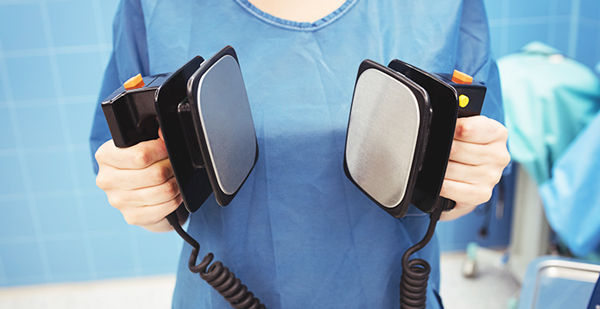
Leading the Way in Advanced Treatment Options
Empowering Lives
Advanced Cardiac Treatment Option
Advanced cardiac treatment options refer to the cutting-edge medical procedures and therapies for managing and treating various heart conditions. These options incorporate the latest advancements in technology and medical research, offering hope and improved outcomes for patients with cardiac issues. Let’s explore some of the types of advanced cardiac treatment options:
Cardiac Resynchronization Therapy (CRT)
Cardiac resynchronization therapy, also known as biventricular pacing, is a sophisticated treatment option for individuals with heart failure and electrical conduction abnormalities. This therapy involves the implantation of a CRT device or biventricular pacemaker, which helps synchronize the contractions of the heart chambers. By coordinating the heart’s electrical signals, CRT improves pumping efficiency, enhances symptoms, and increases the quality of life for eligible patients.
Heart Transplant
A heart transplant is a life-saving procedure in cases where the patient’s heart is severely damaged or fails to function adequately. During this procedure, a healthy heart from a donor is surgically transplanted into the recipient’s chest. This complex procedure requires a multidisciplinary team of medical professionals and accurate matching of donor-recipient compatibility. Heart transplantation offers a new lease on life for patients with end-stage heart failure, enabling them to regain their health and resume an active lifestyle.
Types of Advanced Cardiac Treatment Options
1. Coronary Angioplasty and Stenting:
Coronary angioplasty is a minimally invasive procedure for treating coronary artery disease (CAD). A catheter with deflated balloon is inserted in the blocked or narrowed coronary artery. The balloon gets inflated to compress plaque against the artery walls, widening the passage and improving blood flow. A stent (a small mesh tube) is often placed during the procedure to help keep the artery open and prevent re-narrowing.
2. Heart Valve Replacement/Repair:
Heart valve surgery may involve replacing or repairing damaged heart valves. Mechanical valves (made of materials like metal) and biological valves (from human or animal tissue) are used for replacement. Valve repair is preferred when possible, as it preserves the natural valve tissue. These procedures can treat aortic stenosis, mitral regurgitation, and other valve-related issues.
3. Ventricular Assist Device (VAD):
A VAD is mechanical pump implanted in the chest or abdomen to assist a weakened or failing heart in pumping blood. It can be used as a bridge to heart transplantation or as a long-term treatment option for those not candidates for transplantation.
4. Coronary Artery Bypass Grafting (CABG):
CABG is used to treat severe coronary artery disease. It involves bypassing the blocked or narrowed coronary arteries using blood vessels from other body parts. This procedure improvise blood flow to the heart muscle, relieves angina (chest pain), and improves heart function.
5. Implantable Cardioverter-Defibrillator (ICD):
An ICD is implanted in the skin to monitor heart rhythm. If a lifethreatening arrhythmia is detected, it carries an electric shock to restore the normal heart rhythm. ICDs are often used in patients at risk of sudden cardiac arrest.
6. Heart Transplantation:
In cases of severe heart failure, a heart transplant may be considered. A healthy donor heart replaces the recipient’s failing heart. This complex procedure is usually reserved for patients with end-stage heart disease.
7. Minimally Invasive Cardiac Surgery:
Some advanced cardiac procedures, such as valve repair/ replacement and atrial fibrillation treatment, can be performed using minimally invasive techniques. These approaches involve smaller incisions, shorter recovery times, and reduced risk of complications compared to traditional open-heart surgery.
It’s important to note that treatment choice depends on the specific condition, the patient’s overall health, and other individual factors. Cardiologists & cardiac surgeons work together to determine each patient’s most appropriate treatment plan.
Frequently Asked Questions
What are the types of advanced cardiac treatment options available?
Advanced cardiac treatment options include cardiac resynchronization therapy, heart transplant, ventricular assist devices, and percutaneous coronary intervention. These treatments cater to cardiac conditions and aim to improve heart health and overall well-being.
What is cardiac resynchronization therapy (CRT), and how does it work?
Cardiac resynchronization therapy, or CRT, involves the implantation of a biventricular pacemaker or defibrillator. This device helps synchronize the contractions of the heart’s chambers, improving efficiency and blood flow. CRT benefits individuals with heart failure, reducing symptoms like fatigue and shortness of breath.
When is a heart transplant considered a treatment option?
A heart transplant is typically considered for individuals with end-stage heart failure when other treatment options have been exhausted. It involves replacing a failing heart with a healthy heart from a deceased donor. Heart transplants can significantly improve life quality and increase life expectancy for eligible patients.
What are ventricular assist devices (VADs), and how do they work?
Ventricular assist devices are mechanical pumps implanted in patients with severe heart failure or those awaiting heart transplantation. These devices help the heart pump blood effectively and provide temporary or long-term support. VADs works as a bridge to transplantation, maintaining stability until a suitable donor heart becomes available.
What is percutaneous coronary intervention (PCI), and when is it used?
Percutaneous coronary intervention, or angioplasty, is a minimum invasive procedure used to treat narrowed or blocked coronary arteries. It involves inserting a catheter with a small balloon into the affected artery, which is then inflated to widen artery and restore blood flow. PCI is commonly used to relieve symptoms and reduce the risk of heart attacks in individuals with coronary artery disease.
Subscribe to Platinum For Heart Newsletter
Sign up now and get free access to our monthly newsletter on Heart health & More
Sources:
1. www.aiims.edu
2. www.fortisescorts.in
3. www.notto.gov.in
4. www.apollohospitals.com
Disclaimer: The information presented by Boston Scientific Corporation is for educational purposes only and does not recommend self-management of health issues. The information should not be treated as comprehensive and does not intend to provide diagnosis, treatment or any medical advice. Individual results may vary and hence, it is advisable to consult your doctor regarding any medical or health related diagnosis or treatment options.
IC-1659901AA-0823

